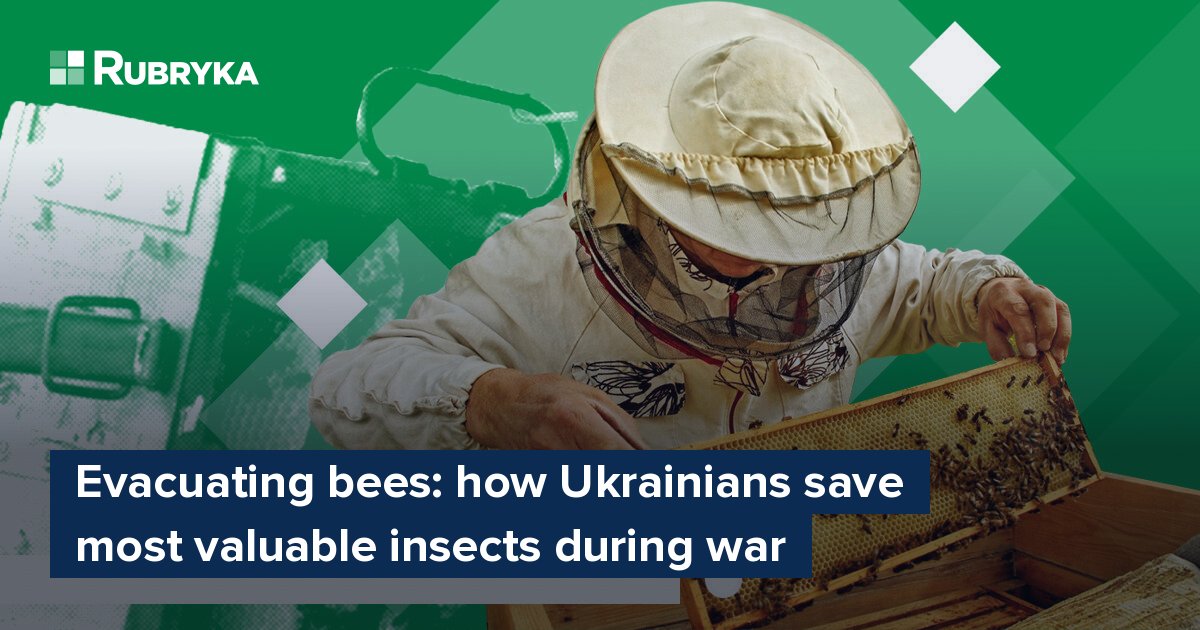
What is the problem?
The Ukrainian government considers beekeeping a strategic direction in developing agriculture in Ukraine. In addition to the fact that a significant number of people are involved in this industry in Ukraine, beekeeping is of great importance for pollinating crops and increasing their yield, which substantially contributes to our country's economy. Beekeeping in Ukraine is an export-oriented branch of the economy, and our state is consistently among the top five honey suppliers in the world.
At the same time, many beekeepers suffered because of the war. Due to the difficulties of relocating beehives, shelling, and damage, they may stop their business forever. But we should not give up — many beekeepers have found ways out of the most challenging situations and rescue beneficial insects despite everything. How do they do it? Read further.
What is the solution?
Evacuating 1.5 million bees from Donetsk region in middle of season
Mykolaivka resident Liudmila Nahorna and her husband have been beekeepers for over 40 years. In Motherland, the couple had an apiary with 31 beehives with about one and a half million bees. At the beginning of April last year, the Nahorni family evacuated from their house with their dogs and cats. The bees had to be left behind because it's challenging to take out 31 giant hives, the average weight of each of which is about 70 kilograms, and it is difficult and expensive to do it alone.
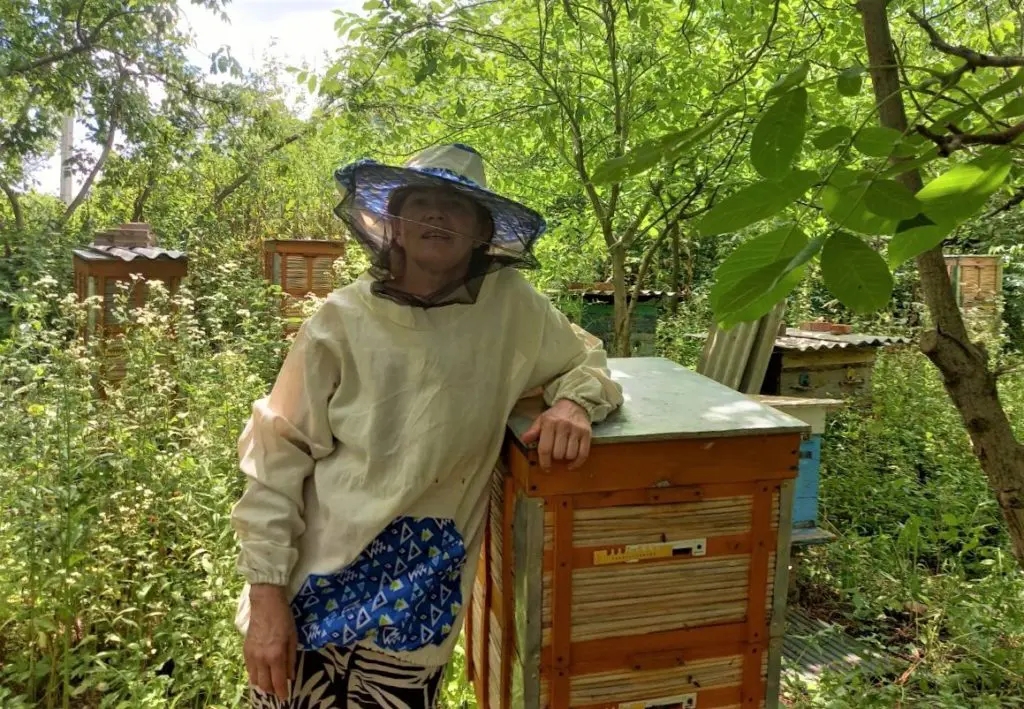
But later, they still returned for the bees. The woman said she could not live without her pets, so they decided to take the bees out of the dangerous territory. Evacuating the bees in the middle of the season, when the insects have already collected enough honey, is a new experience for beekeepers, but they successfully coped with it.
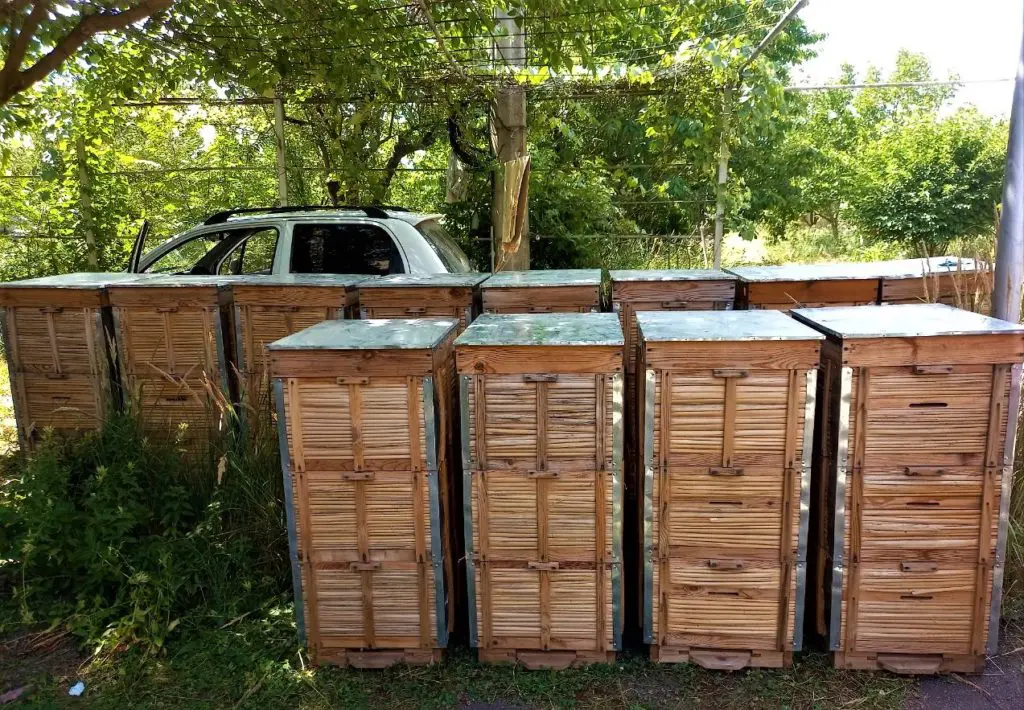
They removed frames with honey (about 40-50 kilograms for each bee colony ) from the first batch of hives and loaded them into the Gazelle truck. The beehive landing boards (openings through which the bees fly out, ed.) were closed in advance. The road from the Donetsk region to the new home of bees in the Dnipropetrovsk region was to last at most 2 hours: immediately after the end of the curfew and before the departure of the bees from the hive for nectar.
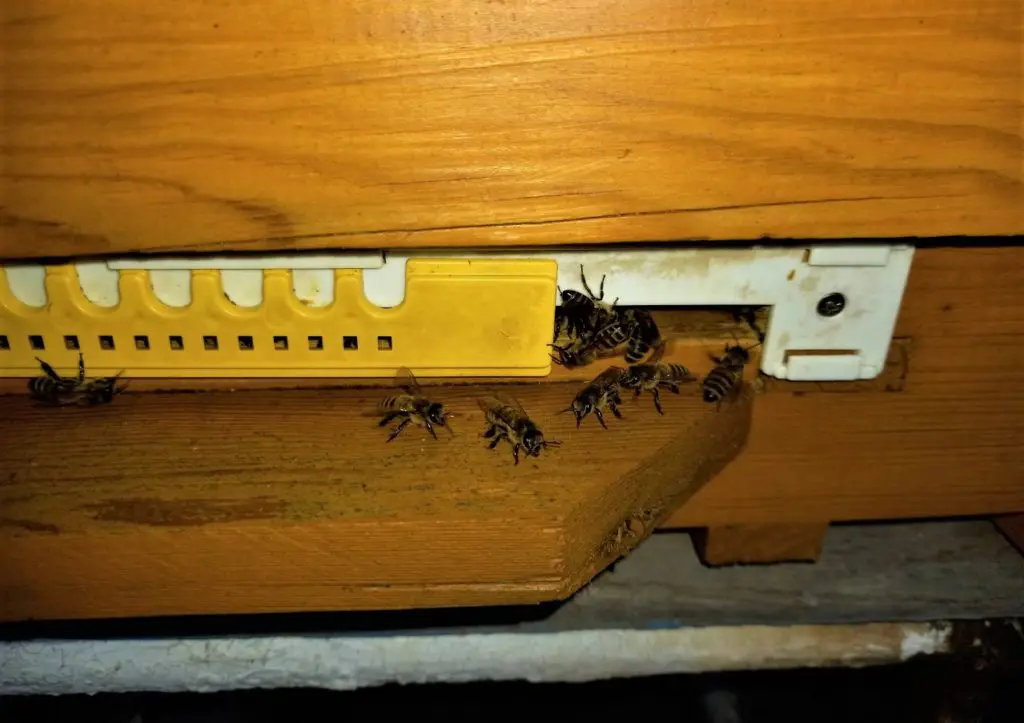
The bees managed this path well and have already gotten used to the new, albeit temporary, place. In 2022, the beekeepers did not get any honey for sale: they left what the bees had managed to collect to the insects "to eat," but they managed to cope with the main task of protecting the bees.
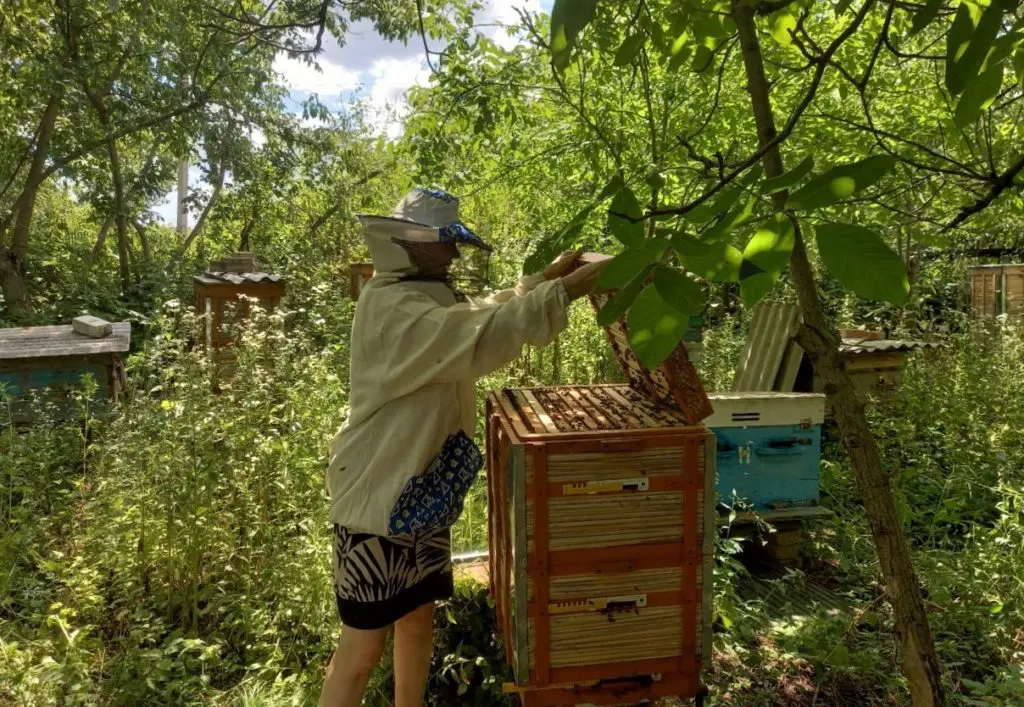
Saving bees from shelling in ammunition box
In the summer, "combat" bees from the Donetsk region settled in Cherkasy. Military serviceman Oleksandr is engaged in beekeeping at home, and he says that as soon as he hears a bee swarm, he immediately runs to the sound. The same thing happened on the front line when a soldier saw a bee swarm on a tree.
He carefully shook the queen with the swarm into the box from under the pies because he knew the bees could perish without care. And when he returned to the base of his unit, he found a new house for the bees: an ammunition box. As it turned out, it was the only suitable house for insects: it was of sufficient volume, airtight and reliable.
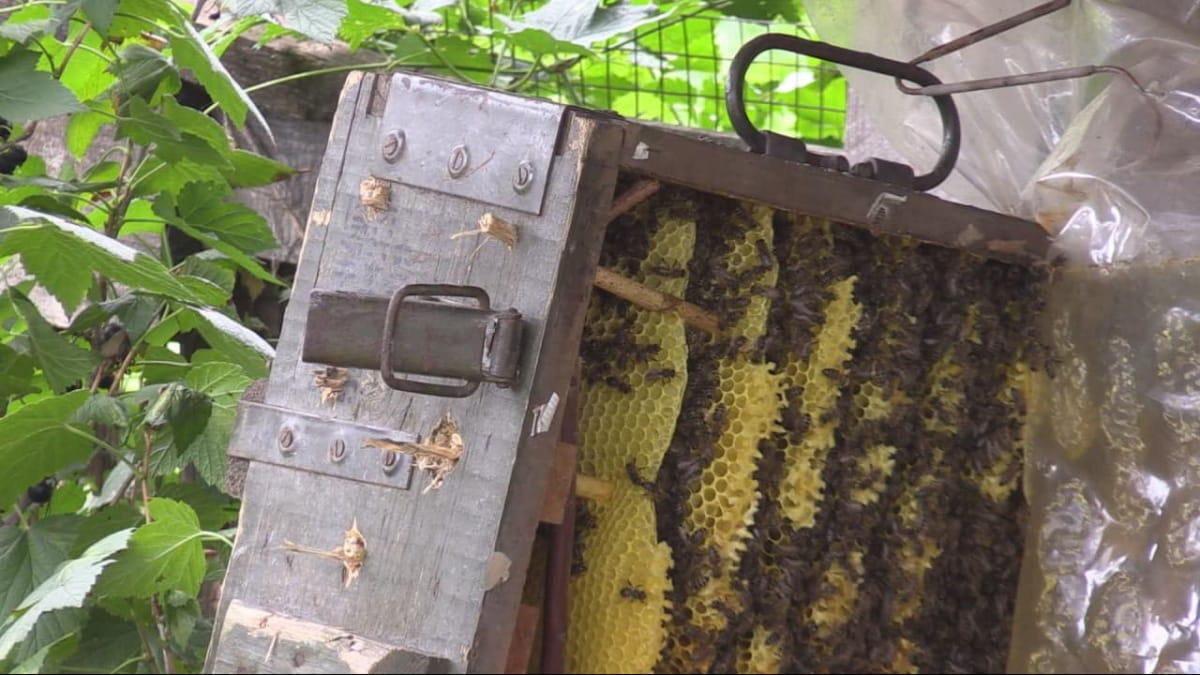
Oleksandr made holes in the box and made bars — the way our ancestors used to do it in ancient beehives. And when Oleksandr was transferred to another base, he evacuated the bees, arranging with volunteers to take the migrant insects home to Cherkasy. Still, the only problem was that the bee house was an ammunition box, there were roadblocks with checks ahead, and the road to Cherkasy was 700 kilometers.
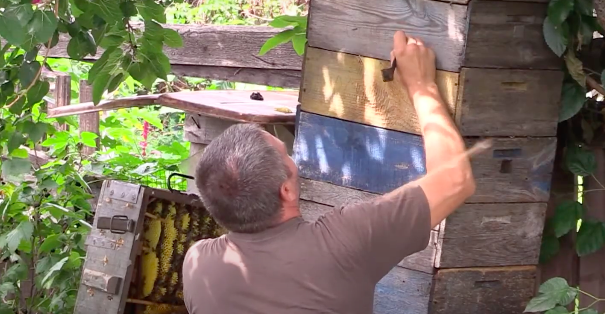
But everything worked out. The bees from the war withstood steadfastly seven hundred kilometers off-road. And while Oleksandr defends Ukraine in the east, volunteers and the son of a military man Yaroslav, to whom his father imparted knowledge about the peculiarities of bee care, help take care of honey-bearing insects.
The bees liked the new place the first three weeks after the move and increased the family to 60,000! They did not start collecting Donetsk honey from the hive; after experiencing stress, the bees have to get used to it, and the nectar will be shared next year.
Finding grant funds to continue beekeeping
Another beekeeper, Roman Burdzhanadze, also evacuated to the Dnipropetrovsk region. At home, in the Luhansk region, he developed an industrial apiary for five years. It had 200 beehives and brought a stable income. Due to russia's full-scale invasion of Ukraine, the man and his family were forced to leave their home and their favorite business at the beginning of March. The apiary was under occupation on the second day of the full-scale war. There was no access, so the beekeeper could not take anything with him.
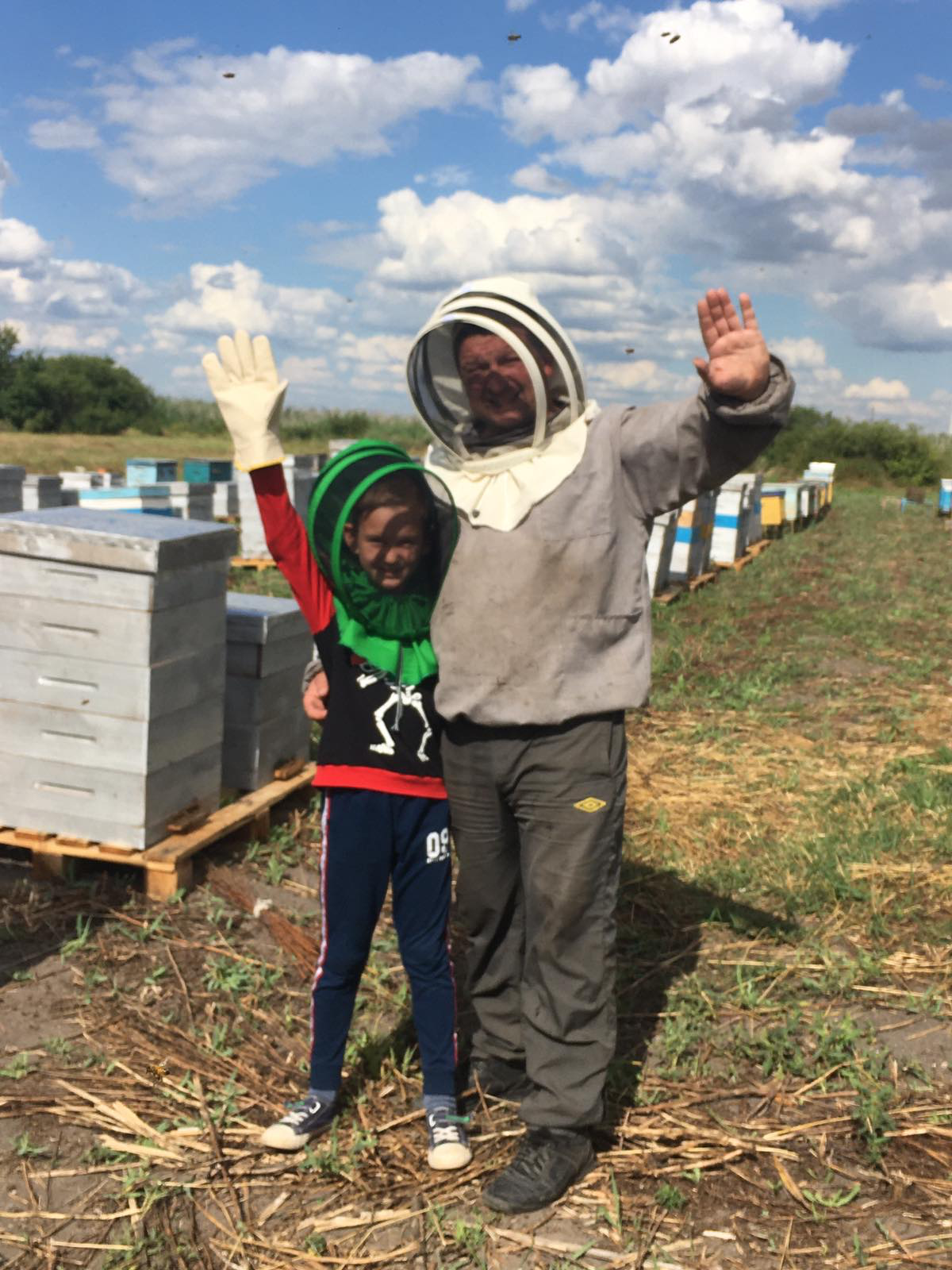
Having found himself in one of the villages of the Pavlohrad district in the Dnipropetrovsk region, Roman began to think about restoring the apiary and where to find money to start the business "from scratch." He turned to the specialists of the USAID project, Economic Support of Ukraine, who helped him prepare a business plan and receive a grant from the state under the YeRobota program for 250 thousand hryvnias. The beekeeper spent this money to purchase wood for beehives, frames, other inventory, and bee packages. Roman also employed two internally displaced persons who worked at his apiary at home in the Luhansk region.
"The beekeeper has work even in winter, so now, in the shop, we are preparing hives, painting them for the new season so that we can bring in bees in the spring. Here, in the Dnipropetrovsk region, there are good honey plants: herbs, acacia, a forest, and a river. I hope that I will get delicious honey," says Roman Burdzhanadze.
The Luhansk beekeeper started getting to know local beekeepers, asking where to buy high-quality beeswax. Not finding one in the region, he applied for a grant from the Danish Refugee Council and received 15,000 euros to purchase wax production equipment.
And Roman did not stop there and submitted an application to the Mezhyrich community in the Dnipropetrovsk region to purchase premises (workshop) through an auction, where he plans to set up a wax production facility. The man from Luhansk believes he will succeed because he has a favorite business, bees, and faith in Victory. So he is looking forward to spring to create a new powerful apiary, for which he has already prepared 120 hives.
Even more helpful solutions!
Breeding new bee species to more effectively restore apiaries in de-occupied territories
Zootechnics Department at Petro Prokopovych Beekeeping Institute's National Scientific Center created an interbreed type of the Ukrainian steppe breed of bees called Hadiatskyi, which scientists announced at the meeting of Ukraine's National Academy of Agrarian Sciences.
The new type of steppe bees is optimal for restoring apiaries that suffered from military aggression in Ukraine's central and eastern regions.
"Hadiaskyi bees have improved hygienic behavior. The use of selected material will ensure profitability within 35% due to the improvement of the epizootic situation of apiaries by 30-40% and the stabilization of economic and useful features of bee families, and the increase of overall productivity by more than 15%," Beekeeping Institute reports.
So what can be done to save bees?
If you are also a beekeeper and want to relocate your apiary, you can use the experience of other Ukrainian beekeepers and try the following options:
- Contact the local government. Liudmila Nahorna from Mykolaivka initially chose this option. Unfortunately, in her case, the local authorities could not help, but it's not the same in every community. As we noted at the beginning of the article, beekeeping in Ukraine is considered a strategic development direction, spelled out in legislative acts, so you should take advantage of the opportunity to receive state support.
- You can take advantage of the state business relocation program if registered as a legal entity (but not as a sole proprietorship). To do this, you need to apply to relocation at the link, indicating the specialization of the enterprise, the number of employees, production capabilities, needs for production premises, raw materials, placement of employees, and the method of transportation.
- Contact volunteers. The largest animal protection organization that helps to get any living creature out of dangerous areas is UAnimals.
- Specialists from USAID will help to attract additional financial support within the Economic Support of Ukraine project. Support is provided to the specialists in a few directions, and "Beekeeping" is singled out. Here, beekeepers will find additional training courses and opportunities to cooperate with beehive producers with special discounts, consulting support for honey export, etc.


